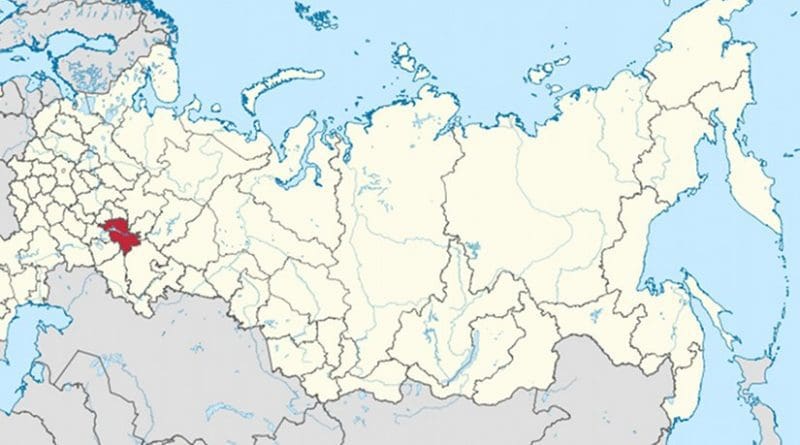Tatars Again Organize An Alternative State – OpEd
By Paul Goble
Last week, the World Congress of Tatars resolved to create its own national council, the Milli Shura, an institution that echoes the one Tatars set up exactly 100 years ago to unite the Muslim nations of the disintegrating Russian Empire and that ultimately became the basis for the formation of the Tatar Republic within the USSR.
Ayrat Fayzrakhmanov, the vice president of the World Forum of Tatar Youth, draws attention to this historical coincidence and argues that Tatars and especially Tatar officials and young people must make use of this new institution to prevent the Tatar nation from dying out (idelreal.org/a/28659105.html and business-gazeta.ru/article/353689).
The 1917 action was intended to create an extraterritorial autonomy that could unite the Muslim peoples of the Russian Empire and coexist with other forms of national autonomy, he writes. Its authority spread across the Muslim communities of the Volga, the Urals region and Siberia as well as in Moscow and Petrograd.
And the leaders of the 1917 Milli Shura boldly proclaimed that their goal was to create “a nation of ‘Turkic-Tatar Muslims’” who could take their destiny into their own hands both via this body and via meetings of Muslims from across the Empire. (For a discussion of the details of this movement, see Shafiqa Daulet’s Moscow and Kazan (Hudson, NH, 2003).)
The Tatars like other Turkic nations a century ago were forming themselves out of the common Muslim community, and the Milli Shura’s call for national cultural autonomy served, Fayzrakhmanov says, as the basis for the subsequent rise of Tatarstan as an autonomous republic within the Soviet Union
Indeed, at the very first meeting of this alternative legislature and government, delegates spoke of the need to create a territorial unit that later became known as “the state of Idel-Ural” with a capital in Kazan. The Bolsheviks reacted harshly, arresting the leaders and disarming the state’s soldiers; but they did not kill the idea by their action.
Indeed, the restoration of the name this past week shows that the same ideas which animated the Tatars and other Muslim peoples of the empire in 1917 continue to animate them a century later, the Tatar youth leader suggests.
Unfortunately, given how politically charged this term is, the leaders of the World Congress chose not to draw these links in public. But that doesn’t make them any less powerful. And here is why: Tatars then and now are animated by Gayaz Iskakhi’s pre-1914 novel that suggested they would disappear as a nation in 200 years if they did not struggle to survive.
If one uses Iskhaki’s time line, the Tatars have only about 80 years left. At a time when Moscow is moving to take more and more rights away from Tatarstan, even that period of time seems optimistic. But this line of argument represents a major sea change in opinion, one that may be the most important outcome of the World Congress.
There are two kinds of national movements in the world: the optimistic and the pessimistic. They are very different, and the latter is often more dramatic and radical. Optimistic nationalist movements are generally a reflection of a people that is growing demographically and expects to win by just continuing.
Central Asian movements at the end of Soviet times were of this type. As one of their leaders put it to the author of these lines 30 years ago, “we don’t have to win the battle of the streets: we are winning the battle of the bedroom.”
Pessimistic nationalist movements, in contrast, arise when members of a group conclude that if they do not act and soon, their nations will disappear. The national movements in Estonia, Latvia and Lithuania in Soviet times were precisely of that kind: Their peoples looked at the demographic and political situation and drew the direst conclusions.
That energized them and led to the movements which assumed a leading role in the demise of the USSR. For a long time, the Tatars of the Middle Volga were an optimistic national movement, despite Iskhaki’s prediction; now, they are becoming a pessimistic one – and that suggests the Milli Shura may play a larger and more radical role than anyone now expects.
Some in Moscow appear to appreciate that this is a serious threat to Moscow. One commentator has even suggested that Kazan by taking it has “declared war” on the Russian government (versia.ru/vlasti-tatarstana-gotovyatsya-k-vojne-s-federalnym-centrom).

